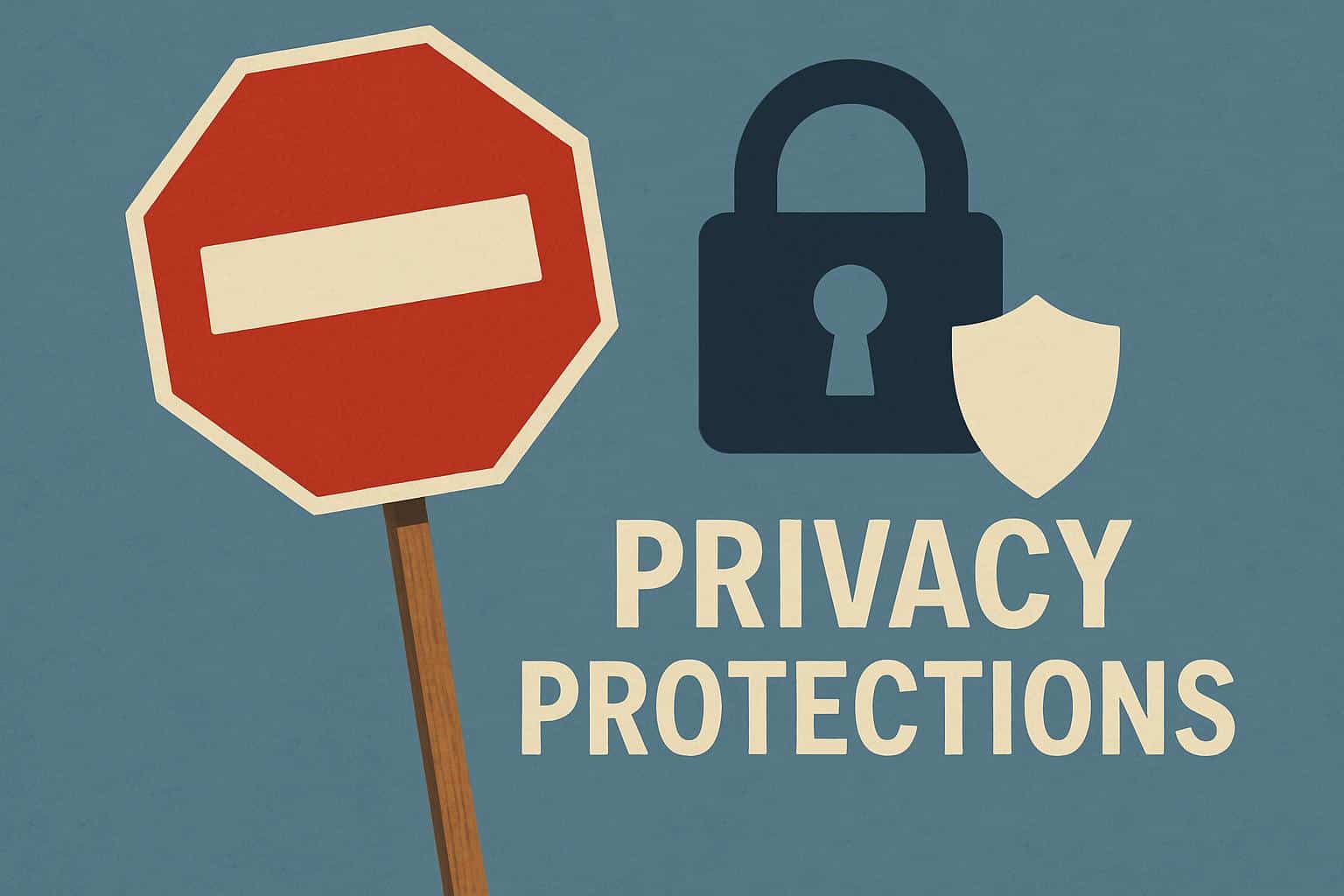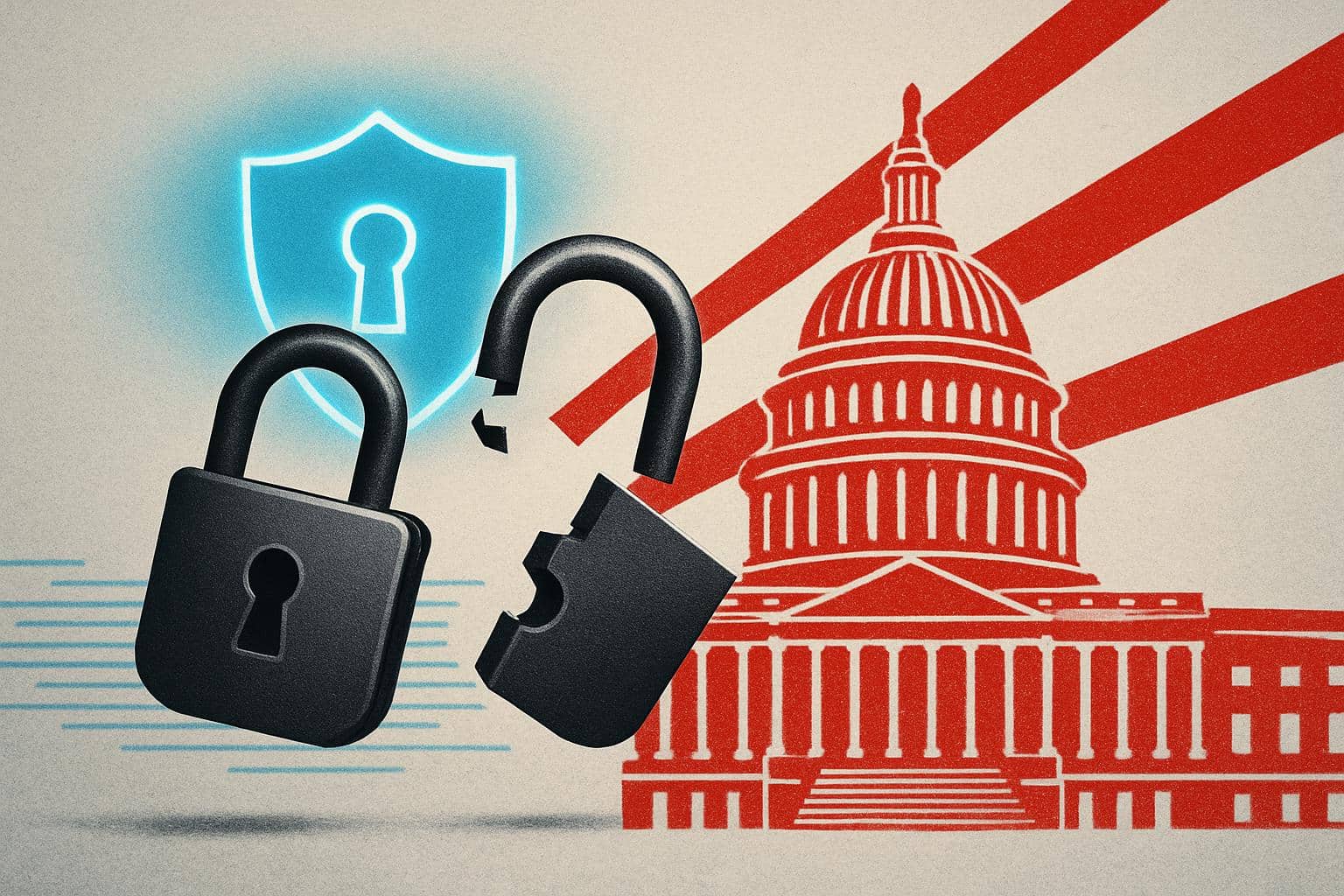Senator Ted Cruz has alone derailed a fast-track attempt to increase federal privacy protections — something that right now, the country offers mostly just to “critics of government,” and their staff members. The maneuver blocked an attempt by Sen. Ron Wyden to pass his Protecting Americans from Doxing and Political Violence Act by unanimous consent, a procedural path that requires no debate and no roll call vote if no senator objects.
Wyden’s plan would have applied security measures that Congress has previously built in to protect members of Congress, judges and senior officials — restrictions on selling home addresses, for instance — and extended them to the public.

Cruz opposed it, saying it could put public safety at risk — and make it harder to trace sex offenders if they weren’t where they’re supposed to be.
What the Blocked Bill Sought to Do on Data Brokers
In essence, the law aimed only at commercial trading in extremely sensitive personal information. Data brokers aggregate, purchase, and sell granular data sets — home addresses, phone numbers, highly precise location histories, demographic profiles — that are drawn from apps, online forms and offline records. Wyden’s bill aimed to cut off resales of this kind of risky data, likely following Congress’s own restrictions on resale in 2017, because right after that makes an election about something as absurd as doxxing and why it should never be permissible or legal, even when sold by millionaires feeling emboldened.
Wyden cast the measure as a matter of fairness and a security necessity. If the objective is to protect high-risk people, including undercover law enforcement officers and judges and their family members, from harm, he said, nothing meets that protective standard except preventing the commercial sale of residential information altogether. Privacy groups have made that logic for a while: giving special classes creates exceptions; raising the floor for all closes them.
In a related request, Wyden also attempted to bring up a second bill extending the same protections to state officers and their staff as well as survivors of domestic violence and sexual assault. Cruz also was an opponent of that push, arguing that the level of protection deserved more work.
How a Senator Foiled a Quick Passage in the Senate
Unanimous consent is a procedural accelerant: If no one objects, the bill can zoom through without floor time. One objection sends the measure back to the regular calendar, where it has to survive debate and possible amendments. Cruz’s objection isn’t a death knell for the bills, but it sends them to the back of the line and makes passage more difficult.
The Data Broker Economy and Its Dangers to Privacy
For years, the Federal Trade Commission has warned that the data broker industry — which is worth tens of billions of dollars globally — largely operates out of sight, compiling dossiers that can include geolocation trails, health inferences and financial swings. A landmark FTC study laid out opaque sourcing and limited consumer control. More recently, the Office of the Director of National Intelligence found that “commercially available information” can be so powerful — in bulk — that it stands with intelligence data gathered by agencies.
Law enforcement and federal agencies have bought such information to circumvent the need for warrants, a development flagged by the Government Accountability Office and that has been addressed in bipartisan fashion by the Fourth Amendment Is Not For Sale Act. The FTC has additionally filed law enforcement actions against location data brokers in cases that centered on the sale of sensitive outings to clinics, houses of worship and shelters.

The stakes for physical safety are real. Doxxing, the act of publishing a person’s home address or other identifying information with an intent to invite harassment, has risen along with the ready availability of brokered data. Following high-profile assaults on judges and on public officials, Congress put in place tailored protections like the Daniel Anderl Judicial Security and Privacy Act. The same logic should apply to average citizens who face stalking, swatting or threats based on political or social affiliations, advocates say.
Supporters Clash With Skeptics on the Bill’s Scope
Cruz’s camp cautions that sweeping new limits might inadvertently cut into transparency or records that communities rely on, from public registries to some safety notices.
Privacy advocates insist that well-crafted bills can shield legally required public information from exploitation while blocking the commercialization of bulk, granular and easily weaponizable data sets — especially those scraped from apps and ad-tech pipelines.
Policy veterans say the latest privacy bills usually make allowances for journalism, research and public records as they get down to business on data broker sales of sensitive personal details. Other state privacy laws have similarly taken a baby step away from one-size-fits-all public transparency while trying to arrive at policies that protect consumers from overcollection and exposure of their personal information. California’s Move Fast and Fix Things: Delete Act, for instance, strengthened oversight of brokers and provided for individuals to request the deletion of data across all registered brokers without striking down blanket public transparency requirements.
What Happens Next in Congress for These Privacy Bills
Short of unanimous consent, any national privacy expansion would have to clear committee markups, with exemptions ironed out in them. Expect much of the focus to be on three fault lines:
- Whether to ban sales of precise location and home address data without explicit permission
- How to approach public records and registries
- Whether people can sue when their data is misused
Momentum remains. States continue to adopt sweeping privacy laws, leading to a patchwork hated by industry groups and that consumer advocates say still leaves holes. There remains bipartisan interest in reining in the warrantless purchase of such data. The question is whether Congress can come up with boundaries that are strong enough to blunt doxxing and targeted harassment, but not so restrictive as to undermine legitimate transparency and safety tools.
For now, the Senate’s discussion of who gets to be protected — just officials or everybody — has been put into stark relief. The stakes are not abstract: as long as home addresses, phone numbers and exact location patterns remain cheap and abundant, the line between data and danger is perilously thin.

